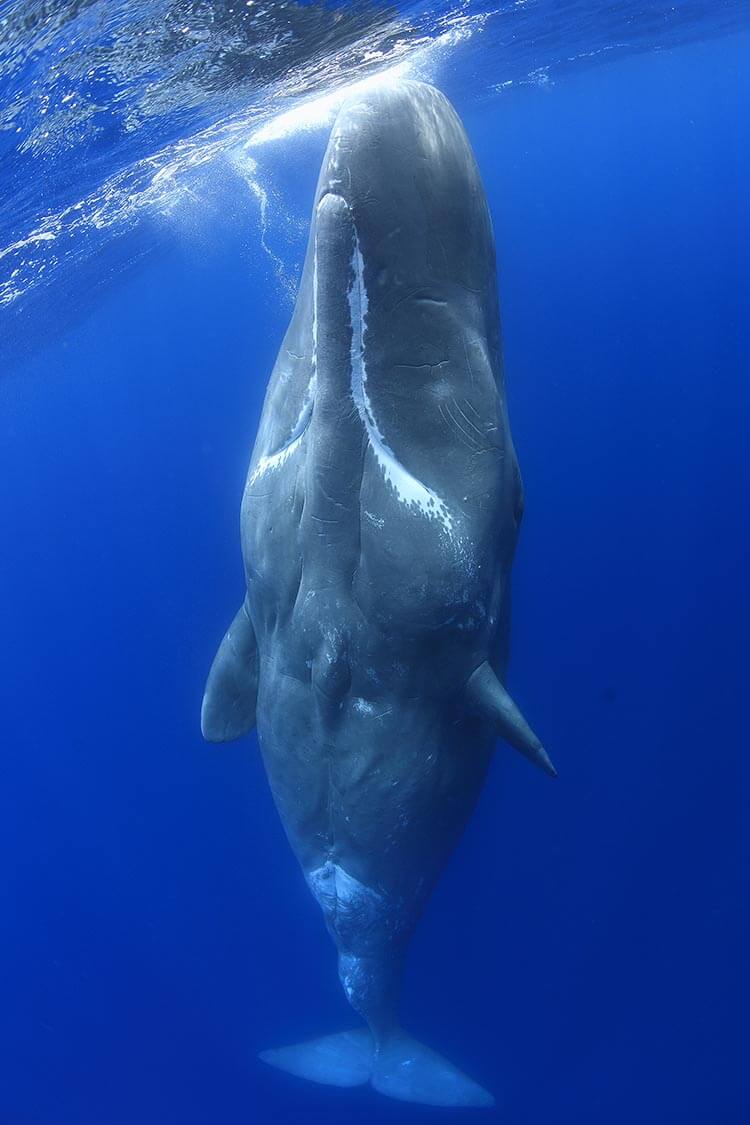
The prime minister of Dominica has announced that the world’s first marine reserve for sperm whales will be established in the Caribbean island nation’s waters.
The reserve, which is set to span some 788 sq km (303 sq miles) off the Caribbean side of Dominica, will provide protection to a local population of some 200 sperm whales, thought to consist of around 35 family groups, which in turn belong to a larger population of approximately 500 sperm in the Eastern Caribbean. The new reserve will greatly expand on Dominca’s two existing marine protected areas (MPAs) which cumulatively support just 11 sq km (4 sq miles) of the island’s waters.
Sperm whales (Physeter macrocephalus) are the largest toothed whale and the largest extant toothed predator, with males averaging around 16m in length. They are distributed globally in all oceans, and among the deepest and longest-diving mammals, capable of spending more than 90 minutes at depth while they hunt for their favourite prey, which includes the giant and colossal squids.
Related articles
It is thought that the worldwide population of sperm whales is relatively large compared with other species, and while hunting the whales for their oil has long been banned, they often fall victim to boat strikes and abandoned ‘ghost’ fishing gear. The new Dominica reserve will impose strict rules on boat traffic and tourist interactions with whales, although traditional, non-threatening, fishing methods will still be allowed.
‘The 200 or so sperm whales that call our sea home are prized citizens of Dominica,’ said Dominica’s prime minister, ‘Roosevelt Skerrit. ‘Their ancestors likely inhabited Dominica before humans arrived. We want to ensure these majestic and highly intelligent animals are safe from harm and continue keeping our waters and our climate healthy.’

Sperm whale faeces is known to be particularly nutrient-rich, and is always deposited at the surface of the ocean after whales return from feeding in the depths. For some reason – potentially a result of the richness of their diet in the region – sperm whales are known to defecate around Dominica more than in other locations. The nutrient-rich faeces deposited by the whales encourages the growth of phytoplankton, which absorbs carbon dioxide and produces oxygen, becoming an important method of carbon sequestration when the phytoplankton dies and sinks to the bottom of the sea.
‘We have lived in harmony with the whales for several decades and consider them as part of us, and they have also formed an important component of our tourism product,’ said Francine Baron, CEO of the Climate Resilience Execution Agency for Dominica (CREAD) ‘In our thrust to approach resilience in a holistic manner, we recognize the need to also ensure the resilience of our marine ecosystems, and in particular, to ensure the protection of the majestic sperm whales.’
- Full Circle – a return journey through 25 years of Sharm El Sheikh - 25 February 2026
- Hollis 200LX second stage regulator recall notice - 25 February 2026
- Student diver dies during training dive in Golfo Nuevo, Argentina - 20 February 2026


